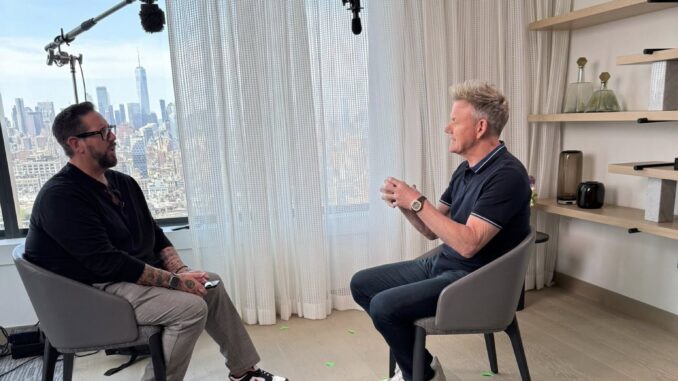
Gordon Ramsay is a household name in the culinary world—known for his Michelin stars, fiery temper, and unforgettable TV moments. But behind his world-class success lies a story of discipline, drive, and, most importantly, mentorship. Ramsay didn’t rise to the top of the food chain by accident; he was guided, challenged, and inspired by some of the most formidable names in the industry.
From Football to Fine Dining
Before knives and sauté pans, Ramsay dreamed of a career in professional football. An injury cut that dream short, forcing a dramatic pivot. His new path led him to culinary school, where his raw talent quickly caught the attention of seasoned chefs. Ramsay was hungry—literally and figuratively—and willing to put in the work.
Marco Pierre White: The Tough Love Mentor
One of Ramsay’s earliest and most influential mentors was Marco Pierre White, the youngest chef to earn three Michelin stars at the time. Working under White at Harvey’s in London was no easy feat. White was notoriously intense—demanding perfection, precision, and total commitment. Ramsay often described his time there as emotionally and physically grueling.
But White’s kitchen became a crucible for Ramsay. It was where he learned to thrive under pressure, respect every ingredient, and value consistency. Though their relationship later soured and became tabloid fodder, there’s no denying White’s foundational role in Ramsay’s journey.
Albert Roux: The Refined Touch
After Harvey’s, Ramsay worked under Albert Roux at Le Gavroche. Roux offered a contrast to White’s kitchen—still demanding, but more classical and French-influenced. Roux’s mentorship polished Ramsay’s skills in fine dining, introducing him to the elegance and artistry of French cuisine.
Roux also facilitated Ramsay’s move to France, connecting him with other greats like Guy Savoy and Joël Robuchon. In Paris, Ramsay immersed himself in the traditions of haute cuisine, waking before dawn to master sauces, pastries, and precise plating. It was an elite boot camp that refined his technique and deepened his passion for excellence.
The Influence of Joël Robuchon
Few chefs command more respect than the late Joël Robuchon, who once held the record for the most Michelin stars in the world. Under Robuchon’s guidance, Ramsay absorbed the philosophy of simplicity—letting the ingredients speak for themselves without unnecessary embellishment.
Robuchon emphasized flavor over flair, and this principle became a cornerstone of Ramsay’s own cooking style. Though Ramsay’s on-screen persona often leans toward the theatrical, his actual dishes reflect restraint, balance, and deep technical mastery—a nod to Robuchon’s lasting influence.
Paying It Forward: Ramsay as a Mentor
What’s remarkable is how Ramsay has taken the lessons from his own mentors and passed them on to the next generation. From his flagship restaurants to reality TV hits like Hell’s Kitchen and MasterChef, Ramsay has guided countless chefs through the fire. Though his methods can be abrasive, many contestants and staff alumni have credited him with transforming their careers.
Ramsay’s philosophy is clear: the kitchen is not for the faint of heart. It requires resilience, hunger for growth, and relentless dedication to quality. These are values he absorbed from his mentors and continues to instill in others.
Respecting the Past, Building the Future
In interviews, Ramsay often reflects on the importance of mentorship. He’s acknowledged how White, Roux, and Robuchon each contributed unique lessons that shaped him not just as a chef, but as a leader.
Despite past feuds—especially the highly publicized rift with Marco Pierre White—Ramsay has matured into a chef who appreciates the full arc of his journey. He’s made peace with many aspects of his past and now emphasizes respect, growth, and giving back.
